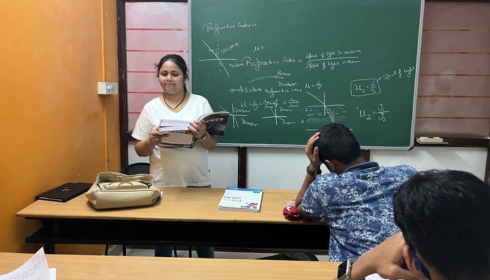What kinds of international student scholarships exist? There are a variety of types of scholarships available for international students, such as:
Merit scholarships: Awarded on the basis of academic achievement, leadership, or other talents.
Need-based scholarships: Awarded on the basis of financial need.
Country-specific scholarships: Governmental or other country-specific grants offered to students from specific countries.
University-specific scholarships: Some universities offer their own scholarships for international students.
Subject-specific scholarships: Those aimed at students who are studying particular subjects, for example, science, technology, engineering, or the arts.
Research scholarships: Those available to students pursuing research projects at graduate level.
How do I locate international student scholarships?
University websites: Most universities provide scholarships to international students. The financial aid sections of these websites are usually the best places to start.
Government and embassy websites: Some countries offer scholarships to foreign students through government initiatives or embassies.
Scholarship search websites: Some sites, such as Scholarships.com, Fastweb, and ScholarshipPortal, can search for scholarships based on the country, area of study, and other parameters.
International institutions: Organizations such as the United Nations, World Bank, and private foundations may provide scholarship opportunities or fellowships.
Eligibility requirements: International student scholarship eligibility differs according to scholarship programs. The eligibility criteria, however, tend to be more or less common:
Being a citizen of a particular country, for example, some scholarships are only offered to students from developing countries.
Academic performance that meets certain minimum requirements, such as a minimum GPA.
Ability to converse in English or the language in which the host institution teaches, for example, by having scores for TOEFL or IELTS.
Getting accepted to a recognized institution or course.
Financial need or other conditions, for instance, particular courses of study or extracurricular activities.
How do I apply for scholarships as an international student?
Research the scholarships: First, find out the scholarships you are eligible for. Read all instructions and deadlines carefully.
Prepare your documents: The most common documents are transcripts, proof of admission to the university, recommendation letters, a personal statement, and language proficiency scores.
Submit your application: Follow the application process outlined by each scholarship provider. Some may require online applications, while others may need physical copies of documents.
Follow up: After submission, make sure to track your application and respond promptly to any additional requests for information.
Are there any scholarships for students studying in the U.S.? Yes, several scholarships are available for international students studying in the U.S. Some prominent ones include:
The Fulbright Program: Funding for international students to study in the U.S. for one year or more.
The American University Emerging Global Leader Scholarship: For international students who demonstrate leadership and academic excellence.
The Joint Japan/World Bank Graduate Scholarship Program: Funding for students from developing countries to pursue graduate studies in the U.S.
Do I have to pay tuition fees even if I’m granted a scholarship? That varies. There are scholarships that pay you the full fee for tuition; there are scholarships that give a partial payment toward your tuition; and some can cover books, housing, travel, and cost of living expenses. So look into the type of scholarship given.
Can I apply for more than one scholarship? Yes. It is possible to apply for several scholarships as long as you have the eligibility criteria for each. Incidentally, applying for several scholarships increases your likelihood of getting scholarships from different sources. You should, however be aware of overlapping deadlines and the time spent in filling out each application.
Does it have renewability for international student scholarships? This means some may renew several years while most international student scholarships offer one-time aid. When available, you renew based on satisfactory academic progress-for example, your GPA may have a minimum standard requirement or some conditions must be satisfied. Be sure to review each scholarship detail, especially for any renewal option that will have corresponding standards and other conditions that the scholarship has specified.
Can I work while studying with a scholarship? It depends on the scholarship and the country’s regulations for international students. In many countries, international students on certain types of scholarships are allowed to work part-time during the academic year. For example:
For the U.S., international students holding F-1 visas are allowed to work 20 hours a week during semesters and full-time during semester breaks, but the terms of scholarship and also institution might hold them different.
In the UK, generally, international students are allowed to work up to 20 hours per week during the term with a student visa.
What should I write in a scholarship application essay or personal statement? A good scholarship essay or personal statement should contain the following:
Introduction: A short introduction of who you are, your background, and your goals.
Why you are applying: Explain why you are interested in the scholarship and how it aligns with your academic and career goals.
Academic and extracurricular achievements: Highlight your academic success, leadership roles, community involvement, and any relevant experiences.
Future goals: Explain your aspirations and how the scholarship will help you to achieve them.
Why you deserve the scholarship: Share your passion, commitment, and why you are a deserving candidate.
Clarity and personal touch: Make sure your essay is clear, well-written, and reflects your personality and motivations.
Scholarships are often a way through which international students can study overseas with reduced or no financial burdens. There are many scholarship opportunities available to students, so don’t hesitate to start early on your research. Be organized, and with persistence, make that application very persuasive.




